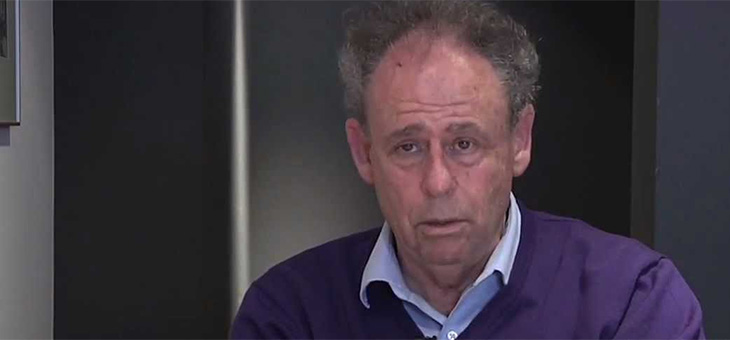Investment veteran Jack Gray says there is little difference between superannuation funds’ strategies and that Australia would be better off with only one or two funds.
Dr Gray said superannuation funds, such as Australia’s big four banks, “don’t really compete … they copy each other. They have different coloured brochures, but there’s no competition there. Competition is a furphy.”
“We are in a business, an industry, where competition is really a pointless thing to worry about, he told Investment Magazine’s Market Narratives podcast.
Dr Gray is the former co-head of asset allocation at GMO Boston, chief investment officer at SunSuper, executive director at AMP Asset Management, adjunct professor of finance at the Centre for Investment Management Research at Sydney’s University of Technology and director and special adviser to Brookvine.
“When I was a CIO, that was always the first thing they wanted to know,” Dr Gray said. “How have we done relative to AusSuper or somebody. ‘Who cares?’ would have been my answer. And the second (question) was, ‘What happened in the market today?’ And again, I would say, ‘I don’t care.’ Asking the right questions is a key thing for these funds, but it’s not clear they do.”
He says clients “don’t give a damn” about the relative performance of funds, despite it being the focus of fund boards.
This is despite industry watchdog the Australian Prudential Regulation Authority (APRA) ‘naming and shaming’ poorly performing funds with its MySuper Product Heatmap – which New Daily super editor Rod Myers says has led to a 42 per cent decrease in super fees.
“The financial regulator has kept the pressure on throughout the pandemic, releasing another heatmap at the end of June that showed fees had fallen for millions of superannuation members,” Mr Myer wrote.
“APRA found that funds servicing 6.1 million members of MySuper default funds, or 42 per cent of the market, had reduced account fees by a collective $110 million a year.”
APRA deputy chair Helen Rowell says she is pleased millions of members are paying fewer fees, “especially given the additional challenges and operational costs funds have faced in relation to COVID-19”.
“Furthermore, some funds and products have closed, and transferred their members to better-performing products.”
Mr Myer says APRA’s heatmap is “part of a plan to shrink the number of super funds by pressuring under-performers to merge, close or at least lift their game.
In June, APRA was explicit about its aims, saying it “continues to pressure the trustees of poor-performing funds to merge or exit the industry unless they are able to materially lift their game”.
Dr Gray agrees with the shrinking idea.
He would like to see the government create an independent body that appoints the people who run one or two large superannuation funds, saying it would increase efficiency.
“You get rid of the relative performance (question), so the pure ideas of investment come through,” he said. “And you get rid of a hell of a lot of extra baggage. Do we really need all these people? Do we really need all these funds at the moment?”
The Australian Institute of Company Directors (AICD) believes the push for superannuation mergers, following the banking royal commission, is “set to create a series of mega industry funds with potent power”.
“The (super fund) businesses are growing and developing very quickly to become much more complex institutions,” Linda Elkins, national sector leader, asset, and wealth management, at KPMG, told the AICD.
As a result, funds will need to hire directors with skills in marketing, compliance and investment.
“Consolidation is happening at a pace that hasn’t happened in the past 10 years,” said Naomi Edwards, the independent chair of Tasplan Super and a non-executive director and fellow of the AICD. “I know a lot of legal advisers and consultants who say they’re currently dealing with multiple trustee boards who are considering mergers.”
The changes came after the Hayne Royal Commission into Misconduct in the Banking, Superannuation and Financial Services Industry exposed serious issues in the super sector, which even included charging fees to dead people. APRA and the Australian Securities and Investments Corporation (ASIC) also came under fire for their role in overseeing the governance of the super industry.
Dr Gray understands if the ordinary investor doesn’t bother keeping up with every to and fro in the super industry.
“People don’t understand super and it’s not because they’re dumb, it’s because they’re smart,” he said. “Why would you want to know much about super? Do you trust the system to do what it’s meant to do? By and large, yeah. And what are you going to do about it? There’s nothing much you can do about it. Engagement is really an empty thing.”
Does Australia need fewer superannuation funds? Are you ‘engaged’ with your fund and its investments?
If you enjoy our content, don’t keep it to yourself. Share our free eNews with your friends and encourage them to sign up.
Related articles:
https://www.yourlifechoices.com.au/finance/legal-and-general/how-to-search-for-lost-money
https://www.yourlifechoices.com.au/health/covid19/ato-crackdown-on-covid-payments
https://www.yourlifechoices.com.au/finance/superannuation/superannuation-changes-from-1-july

